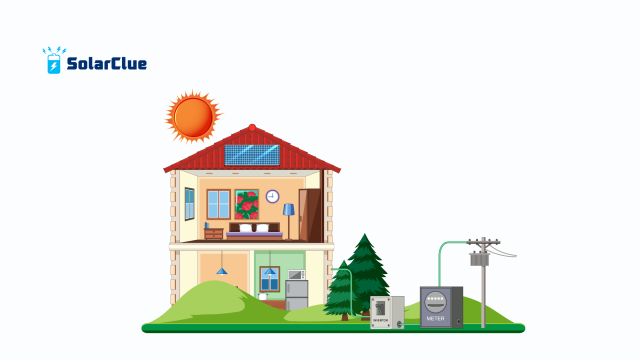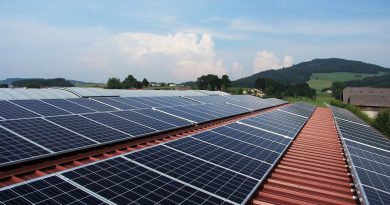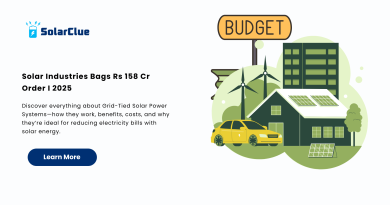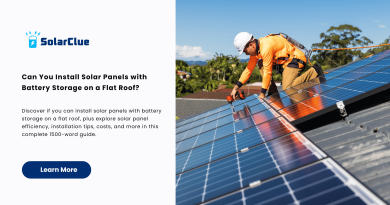Why is a Solar Inverter Essential for a Solar Power System?
Why is a Solar Inverter Essential for a Solar Power System? As the demand for clean energy grows, more homeowners and businesses are turning to the solar power system to reduce electricity bills and carbon footprints. A common question that arises is: why is a solar inverter essential? To fully understand its value, we need to look at how a solar system works and the pivotal role the inverter plays.
Table of Contents
- 1 What is a Solar Inverter?
- 2 How Solar Inverters Work in a Solar Power System
- 3 Why a Solar Inverter Is Indispensable
- 4 Different Types of Solar Inverters
- 5 How Solar Inverters Improve Solar Power Efficiency
- 6 Understanding Solar Inverter Price and Value
- 7 Choosing the Right Solar Inverter
- 8 Maintenance and Lifespan of Solar Inverters
- 9 The Environmental and Financial Impact
- 10 Innovations in Solar Inverter Technology
- 11 Integration with Smart Homes
- 12 Government Incentives and Support
- 13 Installation Tips and Best Practices
- 14 Final Thoughts: Why You Shouldn’t Skip the Inverter
- 15 FAQs
What is a Solar Inverter?
A solar inverter is a device that converts the direct current (DC) electricity generated by solar panels into alternating current (AC), which is used by most household appliances and the electricity grid. Without a solar inverter, the power from your solar system is practically unusable.
How Solar Inverters Work in a Solar Power System
The Flow of Solar Energy
When sunlight hits the solar panels, they produce DC electricity. However, most electrical devices and the utility grid operate on AC. This is where the solar inverter steps in—it converts DC to AC, enabling you to power your home or business.
Grid-Tied vs. Off-Grid Systems
In a grid-tied solar power system, the inverter ensures that excess electricity is fed back into the grid, often earning you credits. In off-grid systems, the inverter works in tandem with batteries to ensure a stable power supply.
Why a Solar Inverter Is Indispensable
Conversion of Energy
The most obvious reason a solar inverter is vital is energy conversion. Without it, your solar panels cannot deliver usable energy.
Optimizing Solar Power Efficiency
Advanced inverters are now equipped with maximum power point tracking (MPPT) technology, which optimizes the performance of your solar power system under various environmental conditions, thus boosting overall solar power efficiency.
Real-Time Monitoring and Maintenance
Many modern inverters offer smart features, such as real-time monitoring, remote diagnostics, and app-based control. This helps in keeping track of energy production, maintenance needs, and system efficiency.
Different Types of Solar Inverters
String Inverters
These are the most common type and are ideal for homes with optimal sun exposure. They connect multiple solar panels in series and convert the power collectively.
Microinverters
Attached to each panel, microinverters optimize performance individually. They’re great for roofs with shading or complex layouts.
Hybrid Inverters
These inverters combine solar and battery functionalities, making them perfect for users who want both grid-tied and off-grid capabilities.
How Solar Inverters Improve Solar Power Efficiency

Efficiency is more than just power conversion. A quality solar inverter adapts to changing sunlight and shading conditions, ensuring maximum output. Some high-end models can reach efficiencies of over 98%, directly impacting the effectiveness of your solar power system.
Understanding Solar Inverter Price and Value
Factors Influencing Cost
The solar inverter price can vary based on capacity, brand, features, and type (string, micro, hybrid). Although you might be tempted to go for the cheapest option, it’s crucial to invest in quality to ensure long-term efficiency and durability.
Cost vs. Benefit
Considering a solar inverter’s role in improving energy output and reducing maintenance, the price is well justified. An efficient inverter can increase your solar power efficiency and reduce your reliance on the grid.
Choosing the Right Solar Inverter
Evaluate Your Energy Needs
Determine your daily electricity usage and consider whether you’ll remain grid-tied or go off-grid.
Assess Roof and Panel Layout
Microinverters may be better suited for shaded or multi-angled roofs, while string inverters work well in consistent sunlight.
Consider Brand and Warranty
Stick with trusted brands that offer good customer support and extended warranties, ensuring your solar power system remains functional for years.
Maintenance and Lifespan of Solar Inverters
Lifespan Expectations
Most solar inverters have a lifespan of 10 to 15 years, depending on the quality and usage. Some premium models can last up to 20 years.
Maintenance Tips
Keep the inverter in a well-ventilated, shaded area. Regularly check for software updates and monitor performance through the app if available.
The Environmental and Financial Impact
By enhancing your solar power system‘s performance, inverters not only reduce your energy bills but also lower your carbon footprint. Over time, the investment pays off both environmentally and financially.
Innovations in Solar Inverter Technology
From AI-based performance optimization to hybrid models with grid synchronization, solar inverter technology is evolving rapidly, making solar systems more reliable and intelligent.
Integration with Smart Homes
Modern solar inverters can integrate with home automation systems, allowing homeowners to control energy consumption more efficiently. This adds convenience and further boosts solar power efficiency.
Government Incentives and Support
Many governments offer subsidies and tax incentives on solar power systems, making now the perfect time to invest in a high-quality solar inverter. Check local programs to reduce your upfront costs.
Installation Tips and Best Practices
Always hire certified installers. Ensure the solar inverter is installed in a location that is easily accessible for maintenance and stays within optimal temperature range to enhance lifespan and performance.
Final Thoughts: Why You Shouldn’t Skip the Inverter
Why is a Solar Inverter Essential for a Solar Power System? In a nutshell, the solar inverter is the heartbeat of any solar power system. It ensures the energy from your solar panels is usable, efficient, and manageable. Skimping on your inverter choice could mean compromising your entire investment. If you’re planning to switch to solar power, take time to understand and invest in the right solar inverter.
Visit us at SolarClue for the best selection of high-efficiency solar inverters tailored for every solar system need. For expert insights and guides, head over to our blog at blog.solarclue.com—we promise, it’s worth your click!
FAQs
1. What happens if I don’t use a solar inverter?
You won’t be able to use the electricity produced by your solar panels, as it will be in DC form and incompatible with household appliances.
2. How long do solar inverters last?
Typically 10-15 years, but high-quality models can last up to 20 years with proper maintenance.
3. Can I upgrade my inverter without changing the whole system?
Yes, as long as the new inverter is compatible with your existing solar power system.
4. Are more expensive inverters worth it?
Absolutely. Higher solar inverter price often reflects better technology, higher efficiency, and longer lifespan.
5. Is it necessary to get a hybrid inverter?
If you’re planning to use battery storage or go off-grid in the future, a hybrid inverter is a wise investment.




